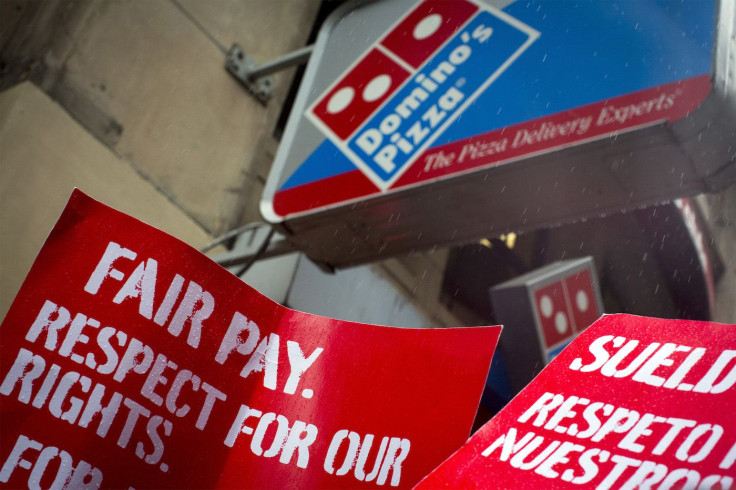The Boxes In Which Pizza Is Delivered Might Be Highly Carcinogenic, Claim Researchers

Pizzas have been long considered as a junk food which is not good for health. However, the latest research by the environmental scientists has revealed that even the human exposure to boxes used to store and deliver pizza to the customers are not good for health. According to the researchers, the boxes contain a chemical which may be highly carcinogenic.
The PFASs, or polyfluoroalkyl and perfluoroalkyl chemicals, and PFCs, or perfluorinated compounds, are commonly used to manufacture everyday use products such as pizza boxes, popcorn bags, carpets and cosmetics packaging. The chemical was first used around 10 years ago during the manufacturing of food containers, and there has been no limit to its use since then.
Because of health concerns, PFCs were introduced in the manufacturing industry as a replacement to a chemical used for the production of Teflon. The chemical was manufactured by DuPont. However, now the Environmental Working Group, or EWB, has put forward a new report which highlights the drawbacks of using PFCs in the manufacturing of a wide variety of food containers, including outdoor clothing and pizza boxes.
The EWB recently logged a warning declaration signed by over 200 scientists from around the world. The declaration talks about the need to deeply study the effect of replacement PFASs to make sure that they are not similar to the banned chemicals in terms of the associated health risks.
“Research is needed to find safe alternatives to all current uses of PFASs. The question is, should these chemicals continue to be used in consumer products in the meantime, given their persistence in the environment?” said Health and Human Services official Linda Birnbaum.
The chemical companies, including DuPont, defend the use of chemicals by saying that these are completely safe. However, the researchers claim that the general public is still ignorant about the use of chemicals and the associated health risks.
"We are deeply troubled that families have no way of knowing if they are being exposed to these chemicals in their own homes. DuPont continues to hide the truth about the health concerns of these new replacement chemicals," said Bill Walker, a consultant to the EWG.
The warning declaration has been published in the journal Environmental Health Perspectives.
To report a problem or to leave a feedback on the article, send an e-mail to emailtoguneet@gmail.com.




















